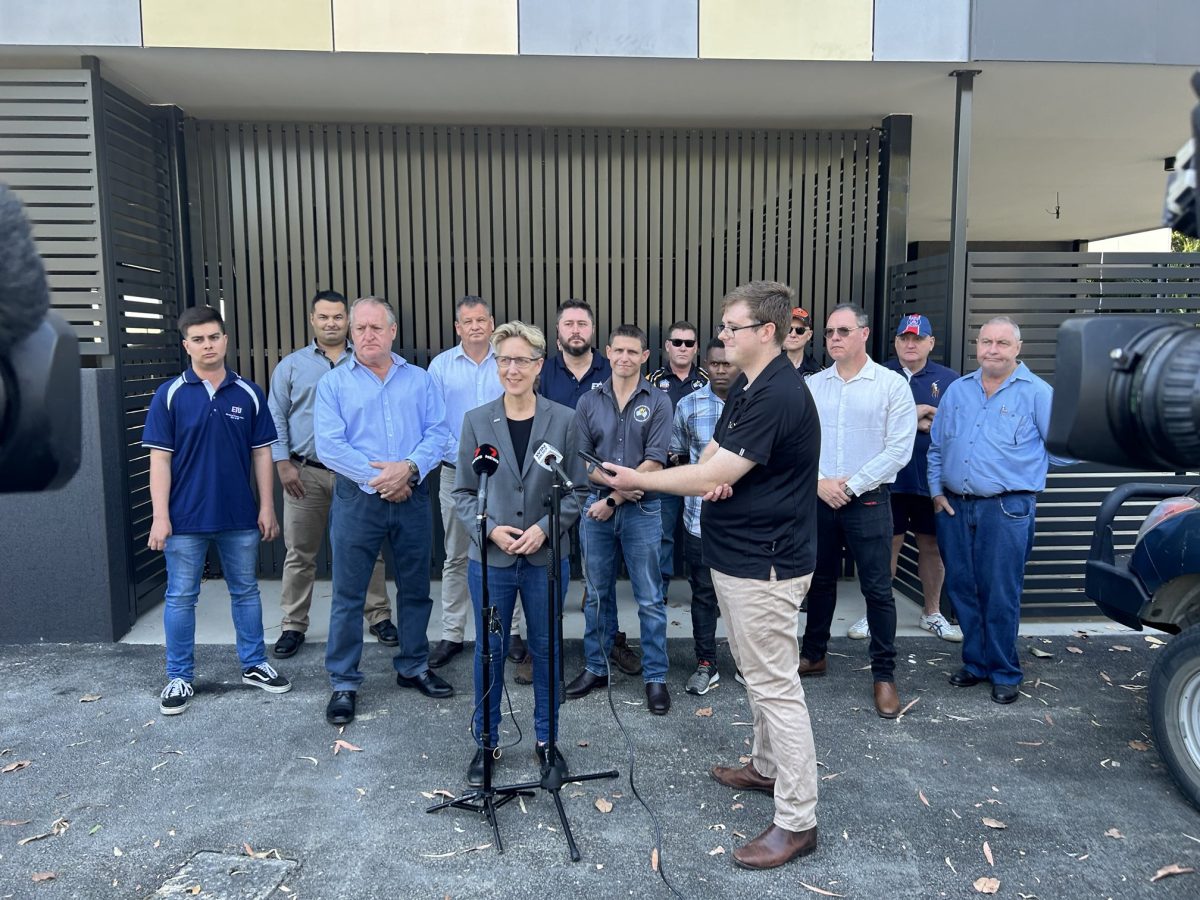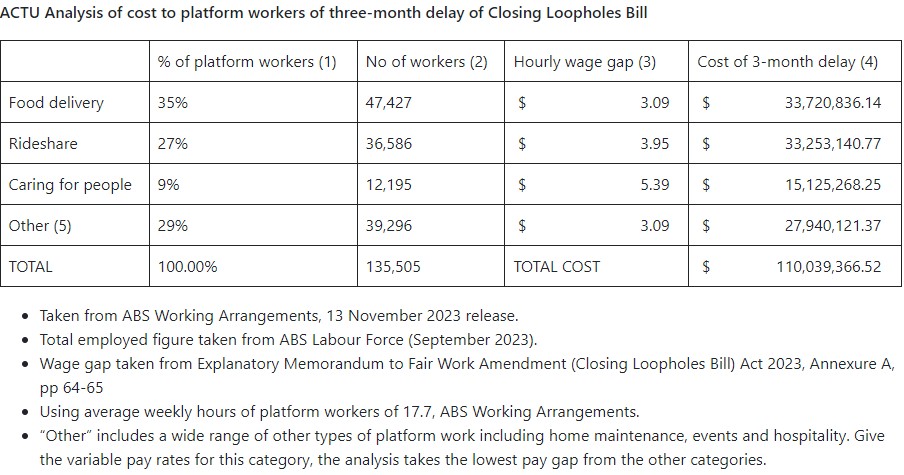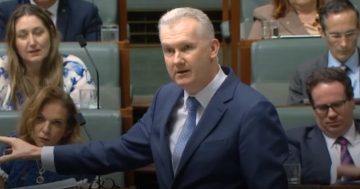
“It’s time for Peter Dutton and the cross bench to decide: Do you want to support the extreme profits of these behemoth corporations, or do you want to help working people?” said ACTU Secretary Sally McManus. Photo: X/@sallymcmanus.
The Australian Council of Trade Unions (ACTU) continues to call on the Federal Government to pass the Closing Loopholes Bill in full, after the Opposition pushed back any vote on the Fair Work legislation amendment until February.
According to ACTU President Michele O’Neil, workers will suffer even more from the cost-of-living crisis due to the three month delay, which she believes was powered by the Mineral Council of Australia’s (MCA) $24 million advertising campaign against it.
Since the Bill was introduced into parliament on 4 September, the government has been mired in debate over the new Industrial Relations laws, with the Opposition’s Senate Deputy Leader Michaelia Cash calling the proposed amendments “complex and confusing”.
“A question and follow-up on the definition of a casual [worker] and the effects of that definition took over 15 minutes to explain. I think many in the room were more confused at the end of the explanation than at the start,” she said.
“I’m not sure how small and medium business operators are expected to work their way through these changes and understand what they can and can’t do.”
A day before the Reserve Bank of Australia (RBA) lifted the cash rate to 4.35 per cent, crossbench senators Jacqui Lambie and David Pocock tabled four private senators’ Bills included in the amendment. The motion intends to accelerate the passing of additional safety provisions for workers so they won’t have to wait until next year.
“We have to get on with delivering what added protections we can now, while we work through the also important but more complex elements of the Closing Loopholes Omnibus Bill,” said Senator Pocock.
“We’re witnessing a really distressing increase in the incidence of family and domestic violence. We’re also seeing an escalation in business insolvencies which in August were up 32 per cent on the same period last year.”
While it was welcomed by the MCA’s CEO Tania Constable, who said “to delay their passing would leave vulnerable workers at considerable risk”, the ACTU said the Bill should be passed in its entirety so that wages could get moving again.
One of the novel elements to the Bill is how it would set minimum standards and wages for workers on digital labour platforms, like Uber, Doordash and Menulog who were all consulted by the government for it.

For the first time on 13 November, the ABS released survey data on platform workers, which found that more than half of platform workers (55%) report working unpaid hours, and the top reason people take such work is for the pay (54%) not the flexibility of hours (13%). Photo: ACTU.
President O’Neil said over the past 10 years of coalition government, wage growth stopped such that the average worker had their pay cut by $4500 or eight per cent in real terms, while they let companies use legal loopholes to keep wages low.
“Jacqui Lambie and David Pocock are acknowledging the importance of some elements of this Bill, but every element is urgent and important, especially during a cost-of-living crisis.
“The companies crying the loudest about these laws are some of Australia’s biggest and most profitable companies – Qantas, and big mining companies such as Gina Rinehart’s, Hancock Prospecting – all who have had massive profits and are paying huge bonuses to their CEOs.”
In response, Senator Lambie said passing the Bill in full would lead to “bad outcomes and unintended consequences” for the nation, and that her “sensible approach” with Senator Pocock would allow the government to appropriately deal “with this beast of a Bill that will have broad ranging impacts right across the economy”.
During the Senate Inquiry into the Bill, it was revealed that the MCA’s $24 million advertising campaign against it was primarily funded by Rio Tinto, BHP and Glencore. BHP recently made the claim that it would cost the Australian mining industry $1.3 billion, which is 26 times higher than the government’s estimated total cost.










